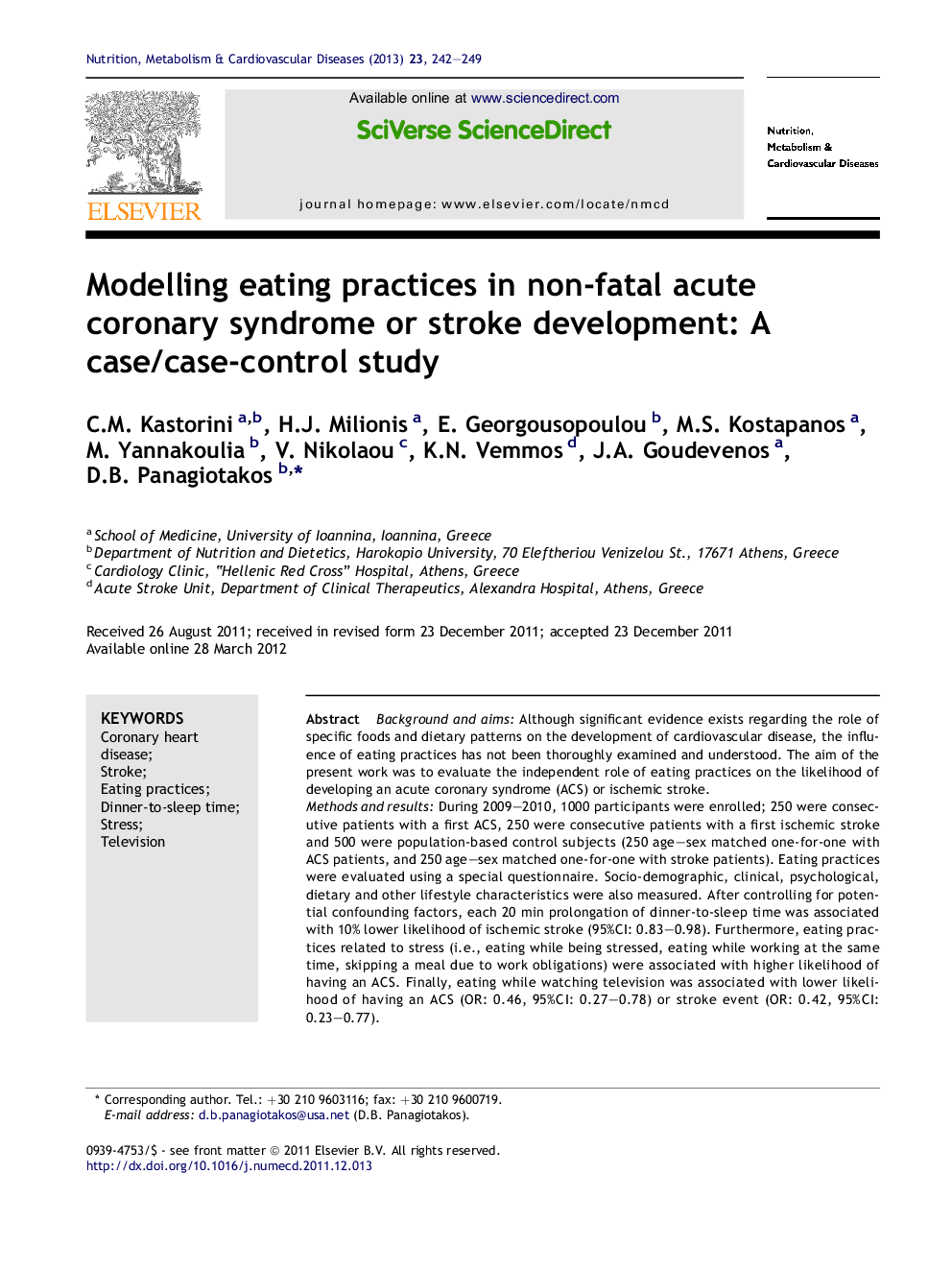| Article ID | Journal | Published Year | Pages | File Type |
|---|---|---|---|---|
| 3001929 | Nutrition, Metabolism and Cardiovascular Diseases | 2013 | 8 Pages |
Background and aimsAlthough significant evidence exists regarding the role of specific foods and dietary patterns on the development of cardiovascular disease, the influence of eating practices has not been thoroughly examined and understood. The aim of the present work was to evaluate the independent role of eating practices on the likelihood of developing an acute coronary syndrome (ACS) or ischemic stroke.Methods and resultsDuring 2009–2010, 1000 participants were enrolled; 250 were consecutive patients with a first ACS, 250 were consecutive patients with a first ischemic stroke and 500 were population-based control subjects (250 age–sex matched one-for-one with ACS patients, and 250 age–sex matched one-for-one with stroke patients). Eating practices were evaluated using a special questionnaire. Socio-demographic, clinical, psychological, dietary and other lifestyle characteristics were also measured. After controlling for potential confounding factors, each 20 min prolongation of dinner-to-sleep time was associated with 10% lower likelihood of ischemic stroke (95%CI: 0.83–0.98). Furthermore, eating practices related to stress (i.e., eating while being stressed, eating while working at the same time, skipping a meal due to work obligations) were associated with higher likelihood of having an ACS. Finally, eating while watching television was associated with lower likelihood of having an ACS (OR: 0.46, 95%CI: 0.27–0.78) or stroke event (OR: 0.42, 95%CI: 0.23–0.77).ConclusionResults of this work, present novel information, indicating the significance of eating practices, in addition to dietary patterns, regarding the development of coronary heart disease and stroke, and could be used in the primary prevention of CVD.
